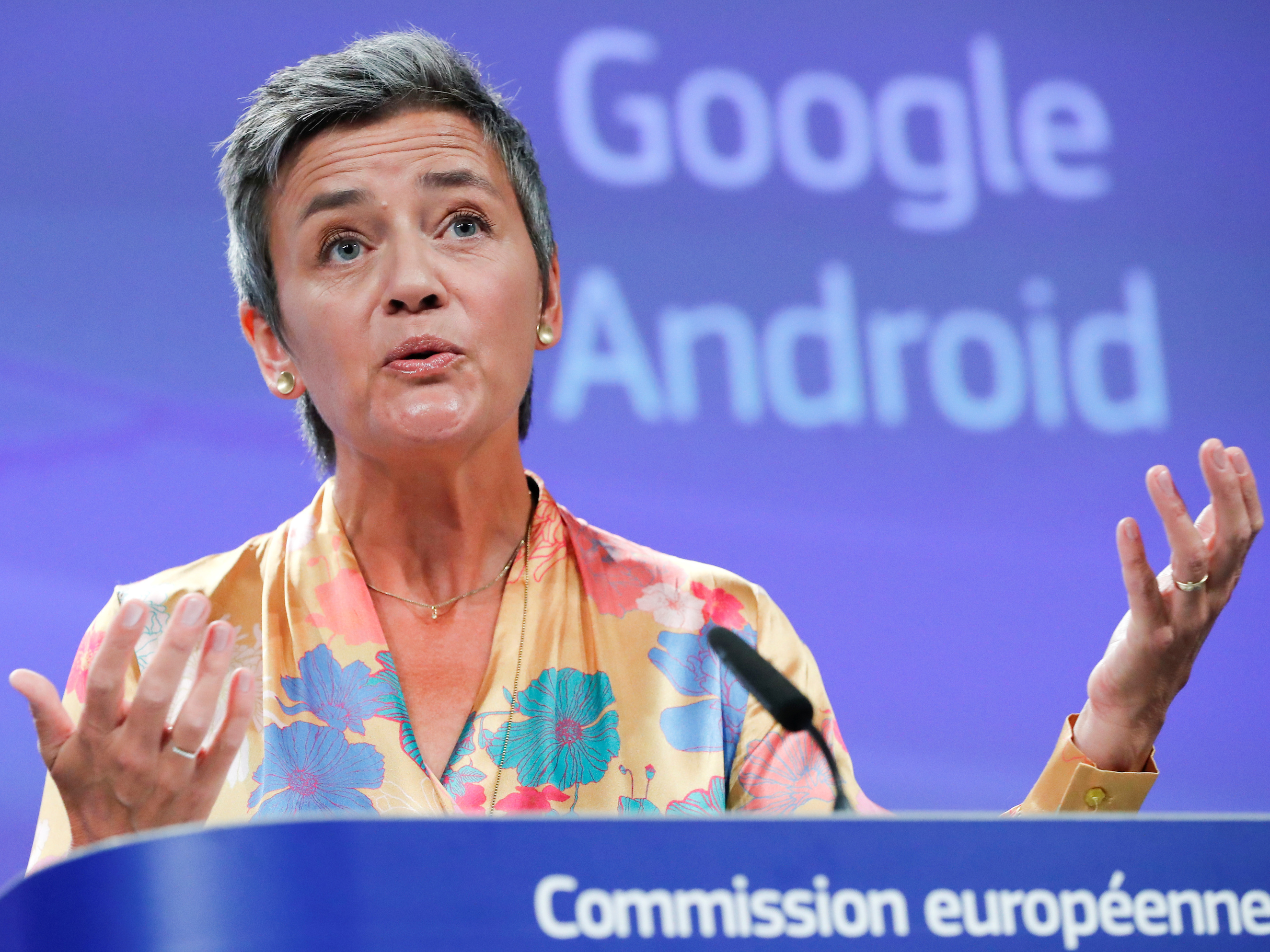- Google secretly tried to settle with the European Commission a year before receiving a massive fine, Bloomberg reports.
- The European Union’s competition watchdog fined Google 4.3 billion euros ($5 billion) last week for abusing the dominance of its mobile operating system, Android.
- Google lawyers reportedly started talking to EU counterparts about settling the Android probe in June 2017, after Google had been fined over its shopping service.
Google secretly tried to settle with the European Union’s competition watchdog over the investigation into Google’s Android operating system, Bloomberg reports.
The European Commission hit Google with a 4.3 billion euro ($5 billion) fine last week for abusing the dominance of its mobile operating system.
European Competition Commissioner Margrethe Vestager told Bloomberg that Google began trying to resolve the investigation a year before the fine was imposed.
Google lawyers talked to their EU counterparts about the possibility of a settlement in June 2017, Bloomberg says, weeks after the company had been fined 2.4 billion euros for abusing its dominant position to promote its shopping service.
The firm's lawyers were reportedly emboldened by a press conference on June 27 in which Vestager refused to rule out a settlement. Citing people familiar with the matter, Bloomberg reports that the lawyers drafted a letter in August with suggestions for addressing the EU's concerns.
Google reportedly offered to adjust contracts to loosen restrictions to which the EU objected. The letter did not go into detail, however, and just outlined starting points for discussion.
Vestager said Google waited at least a year too long to reach out. She said that if companies wished to settle, they needed to get in touch "immediately after" getting the EU's initial complaint or statement of objections.
"That didn't happen in this case and then, of course, it takes the route that it has now taken," Vestager told Bloomberg. Consequently, Google's lawyers never received a formal response, and the EU opted for a cease-and-desist letter.
"It's a very serious legal infringement, and you see how it has worked," Vestager added. "It has cemented Google's position in search, and it has de facto locked down Android in a completely Google-controlled ecosystem."
Business Insider has contacted Google for comment.

